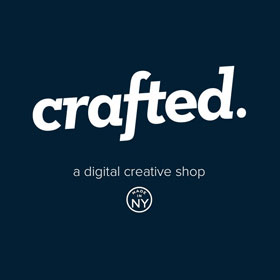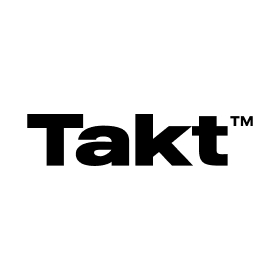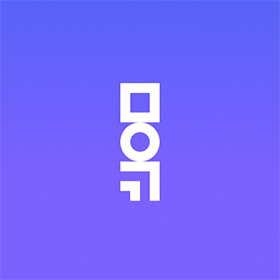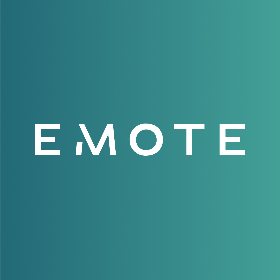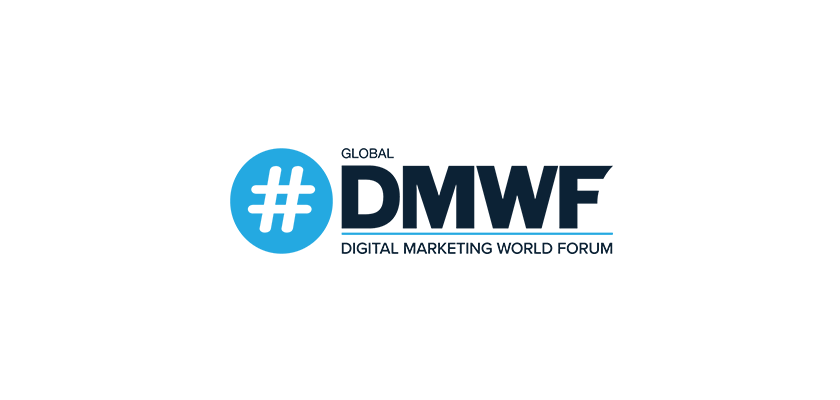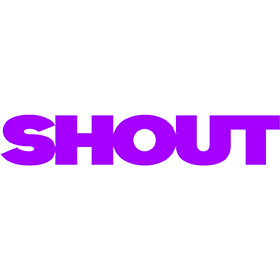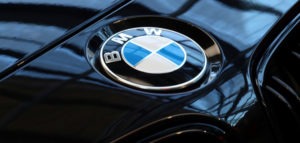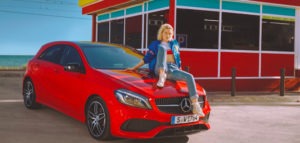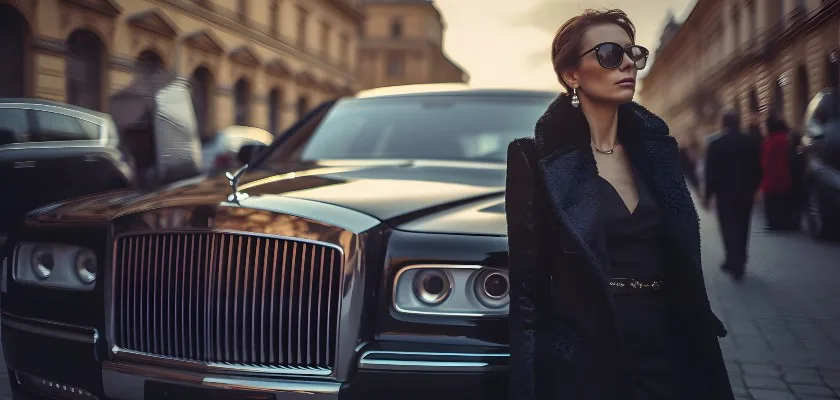
Digital Marketing for Luxury Cars: Strategies to Conquer the Rich
It’s time to focus on a realm of prestige, where iconic brands battle for the hearts (and wallets) of high-net-worth individuals: The luxury car market.
The luxury car market is a world with a delicate balance of heritage, performance, and an aura of unattainable prestige. And, for digital agencies and brands, reaching high-net-worth individuals who crave these car masterpieces requires a marketing strategy as meticulously crafted as the vehicles themselves.
When considering that 73% of luxury car buyers research online before purchasing and HNWIs spend 32% more time interacting with digital content compared to the average consumer, digital marketing strategy becomes a key to unlocking the ultra-luxury automotive industry.
We also know that the challenge for luxury car marketing lies in creating genuine connections with high-end audiences. It’s not just about showcasing technical prowess or flaunting exclusivity; it’s about understanding and addressing the aspirations, values, and concerns of discerning buyers in a meaningful way. Brands that embrace authenticity and forge deeper connections will be the ones to navigate the evolving luxury landscape and truly reign supreme.
So, are you ready to discover actionable digital marketing tips specifically tailored for the ultra-luxury car market? From crafting compelling storytelling that ignites a desire to master the art of targeted communication, keep reading to find out what more you can do, beyond having eye-catching luxury websites and ads, to promote a luxury car brand.
Luxury Car Marketing Strategy: Back to Basics
The high-end car market (which accounts for 13 percent of the global sales of cars) is distinct from the broader automotive landscape. It thrives on exclusivity, brand prestige, and the pursuit of a luxury driving experience. However, it has a complex ecosystem with its unique dynamics and challenges. Understanding these nuances is crucial for any marketer seeking to navigate this exclusive lane.
Despite the entire car market experiencing static growth, the luxury car segment is expected to flourish. This growth is driven by the increasing number of high-net-worth individuals, who see luxury cars as a symbol of success and achievement.
And, undoubtedly, these individuals are tech-savvy, well-informed, and expect a seamless online experience. For that reason, developing effective strategies and teaming up with a seasoned automotive advertising agency in case of need is crucial.
Market Segmentation: Powertrain, Brand, and Price
While heritage and performance undoubtedly play crucial roles (as we mentioned before), a closer look reveals a market grappling with distinct challenges & preferences.
As we all know, from the view of luxury branding, the car market boasts a diverse range of iconic brands, each with its own unique heritage, design taste, and audience. From the “elegance” of Rolls-Royce to the performance of Ferrari, each luxury car brand caters to a specific set of aspirations.
As a result of that, the luxury car market focuses on the type of engine powering the vehicle, with options ranging from traditional to hybrid and fully electric models. (As sustainability concerns gain prominence, both electric and hybrid options are expected to see significant growth.)
Pricing for luxury cars? In fact, while all luxury cars carry a premium price tag, the tiers within the segment paint a different picture. Including Mercedes-Benz and BMW, the ultra-luxury segment, defined by vehicles exceeding $100,000 caters to the most discerning buyers. And yes, that segment, is reserved for these discerning individuals. In this realm, bespoke titans like the Rolls-Royce Phantom, Bugatti Chiron, or Koenigsegg Jesko surpass $1 million, with personalization options changing the price tag.
How to Target High-End Buyers – Marketing Strategy for Luxury Cars
Remember Victoria Beckham saying that her father was the working class but had a Rolls-Royce? We can clearly say that he was an exception in the world of high-end vehicle marketing.
Actually, luxury car ownership is more than transportation; it’s a statement. It’s about belonging to a select group, exuding success, and experiencing the pinnacle of automotive design and performance. Understanding these emotional drivers is key to crafting digital marketing strategies that captivate high-end buyers.
A perfect example of this is Porsche’s digital transformation. Shout Digital stepped in to revamp the brand’s fragmented online presence, turning it into a streamlined, high-converting experience that mirrored Porsche’s exclusivity. By running detailed usability tests and aligning both dealership sites and the main brand site, Shout crafted a consistent user journey that resonated with Porsche’s elite customers. The results were clear: dealership leads for test drives and ex-demo inquiries doubled, showcasing how a cohesive digital strategy can reinforce the brand’s premium status while driving impressive real-world results.
Today’s luxury car buyers are digitally savvy, seeking immersive experiences and authentic connections. Brands must create high-quality, aspirational online presence and contenc that goes beyond technical specifications. What’s more, luxury car brands shouldn’t shy away from social media. Platforms like Instagram and TikTok offer immense potential to showcase exclusivity and prestige.
More tips? Let’s discover well-known luxury car brands’ marketing strategies. (Or you may want to explore our luxury brand marketing agency list first.)
Encouraging User-Generated Content (It Speaks Louder!)
No doubt, seeing the dream car in everyday situations and hearing personal testimonials builds trust and credibility. And that’s why luxury car brands encourage real owners to share their own experiences.
User-generated content also allows potential high-end buyers to connect with the car on an emotional level. Witnessing real people enjoying the car, showcasing its features, and sharing their stories creates a relatable experience.
Best part? That kind of content provides diverse perspectives & unique storytelling opportunities. Different owners highlight different aspects of the car and their experience, creating a richer and more comprehensive picture for potential buyers naturally.
Targeting Gen Z (They’re New High-End Buyers)
Gen Z is now a lucrative target audience for luxury brands since they’re entering their prime earning years. They are also comfortable with online research &engagement, and we know that they value cutting-edge technology and innovation.
All of these make them a great audience segment for luxury digital marketing efforts; A great number of car brands nowadays develop digital marketing strategies targeting youth – who are seeking experiences and self-expression over status symbols associated with luxury.
At that video sharing platforms (especially TikTok) open a door for brands’ marketing teams. In addition to encouraging user-generated content, they team up with young influencers and select & repost videos captured by Gen Z members.
When considering that the luxury car market is a dynamic area, it’s crucial to stay updated on Gen Z’s evolving preferences and behaviors to ensure the strategy remains effective.
Creating New Social Classes
Did you know about “Porsche Girls?” The “social class” is very popular, especially on TikTok. How did they become that popular? It’s a digital marketing strategy, too!
Creating a “distinct” social class around a brand can foster a strong sense of community and belonging among its members – and luxury brands are very good at it. It’s another fact that associating the brand with a desirable social class can elevate its image and perception, making it even more attractive to potential buyers.
It seems that targeting a narrow social group may limit the brand’s potential market share, however, the luxury car brands focus on building a community around shared values, passions, and experiences – not a closed group.
Not Selling Luxury Cars But a Lifestyle
The home truth: The luxury car brands sell more than just vehicles; they’re selling a lifestyle.
By showcasing the car within a curated/elite lifestyle, brands tap into emotional desires for exclusivity or sophistication. And, that absolutely creates a deeper connection with potential buyers, going beyond mere technical specifications.
When considering focusing solely on product features can be challenging, highlighting the lifestyle associated with the product/brand seems a very wise move. It also allows brands to differentiate themselves and showcase what makes their offering unique.
Getting Inspiration from Fashion & Art
A good way to add more exclusivity and prestige to your product? Teaming up with prominent figures in fashion and art and getting inspiration from the art itself.
The collaboration between Bugatti and Jacob & Co. is a great example of how luxury brands can leverage partnerships with artists to achieve several strategic goals.
Via that collaboration, Bugatti could tap into the watch enthusiast market, while Jacob & Co. potentially reached car aficionados: Win-win! What’s more, the collaboration extended beyond watches, including luggage and other accessories, offering a wider range of products for interested customers.
Last Words
So, conquering the affluent market in the digital age requires more than just a flashy website and targeted ads. As we mentioned before, it’s about understanding their aspirations, building trust, and creating a brand experience that resonates on an emotional level.
As we conclude our exploration of digital strategies for marketing ultra-luxury cars, remember: the ultimate goal isn’t just to sell a vehicle, but to captivate the hearts and minds of high-end individuals.


